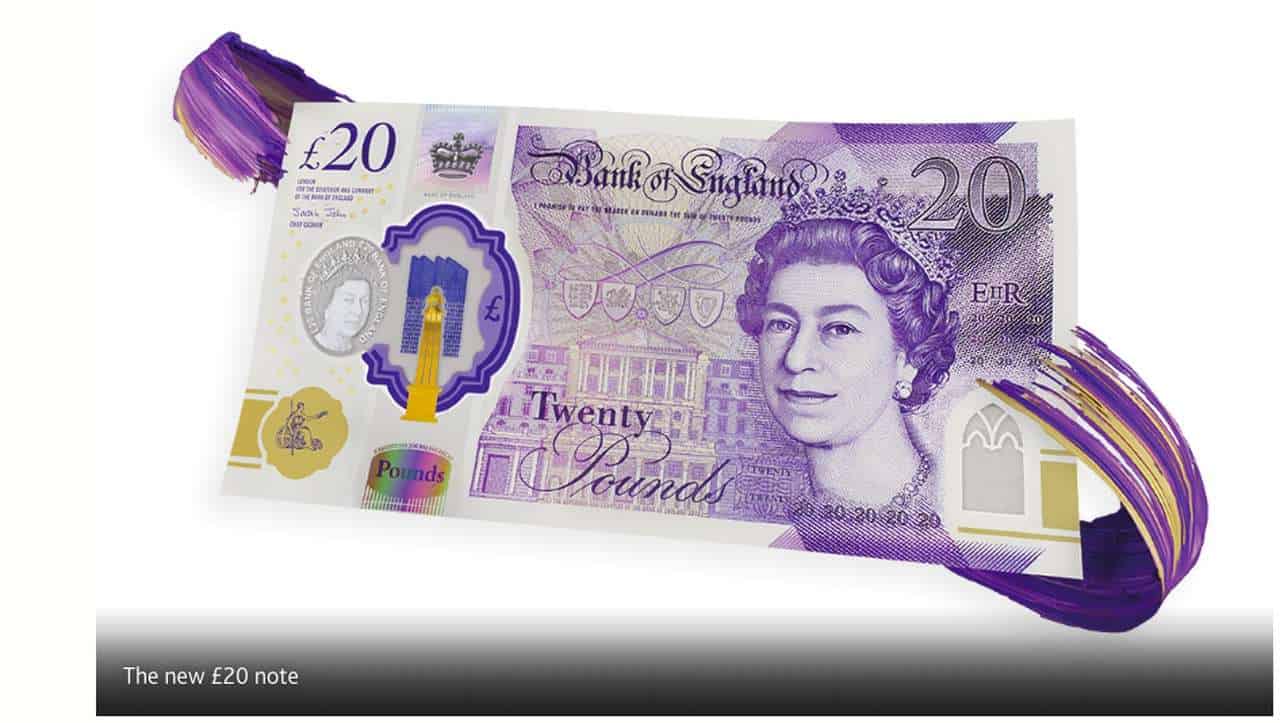A brand new £20 hard-to-forge bank note will hit our pockets in 2020. Designed with brand new forge-resistant features it also features a new face. The British Artist JMW Turner appears on the reverse of the note together with his painting of The Fighting Temeraire.
Why is it being replaced?
The popularity of the £20 note is part of the reason for it also being the most likely to be forged. In the first half of 2018 the Bank discovered 228,000 counterfeit banknotes of which 201,000 were £20 notes.
What’s new?
The banknote will be made from polymer (currently it is made of paper) and will feature Turner’s self-portrait, from 1799. You can see the original on display in the Tate Britain. Also featured is his most famous painting: The Fighting Temeraire. The original is hanging in the National Gallery.
There is also a quote – “Light is therefore colour” – lifted from an 1818 lecture by Turner at the Royal Academy, where he first exhibited at the age of 15. Turner’s signature is also featured and this is a copy of that on his will in which he bequeathed his work to the nation.
Others features include:

- A large see-through window, based on the shape of the fountains in London’s Trafalgar Square, with a blue and gold foil on the front depicting Margate lighthouse and the Turner Contemporary gallery in the town
- A smaller see-through window in the bottom corner of the note inspired by Tintern Abbey
- A metallic hologram which changes between the words “Twenty” and “Pounds” when tilted
- The Queen’s portrait in the see-through window with “£20 Bank of England” printed twice around the edge
- A silver foil patch with the 3D image of the coronation crown
- A purple foil patch containing the letter T, based on the staircase at the Tate Britain gallery
Bank of England governor Mark Carney said:
As the new Turner £20 testifies, money can be a work of art in everyone’s pocket.
What is the note made of?
The new £20 note will be made of polymer, the third Bank of England note to be made of this material. The £5 and £10 notes are already made of polymer. This new material is expected to be sturdy, longer lasting and more likely to withstand the spin in the washing machine. But most of all it is harder to forge.
The £50 note is next in line to undergo the change and the launch is extended to take place in 2021.
Can I still use my old notes?
The Bank of England will be announcing the withdrawal of the paper £20 note in favour of the new polymer version in due course. You will be able to continue to use the paper version for six months after this date.
Many banks will accept withdrawn notes as deposits from customers. The Post Office may also accept withdrawn notes as a deposit into any bank account you can access at the Post Office.

